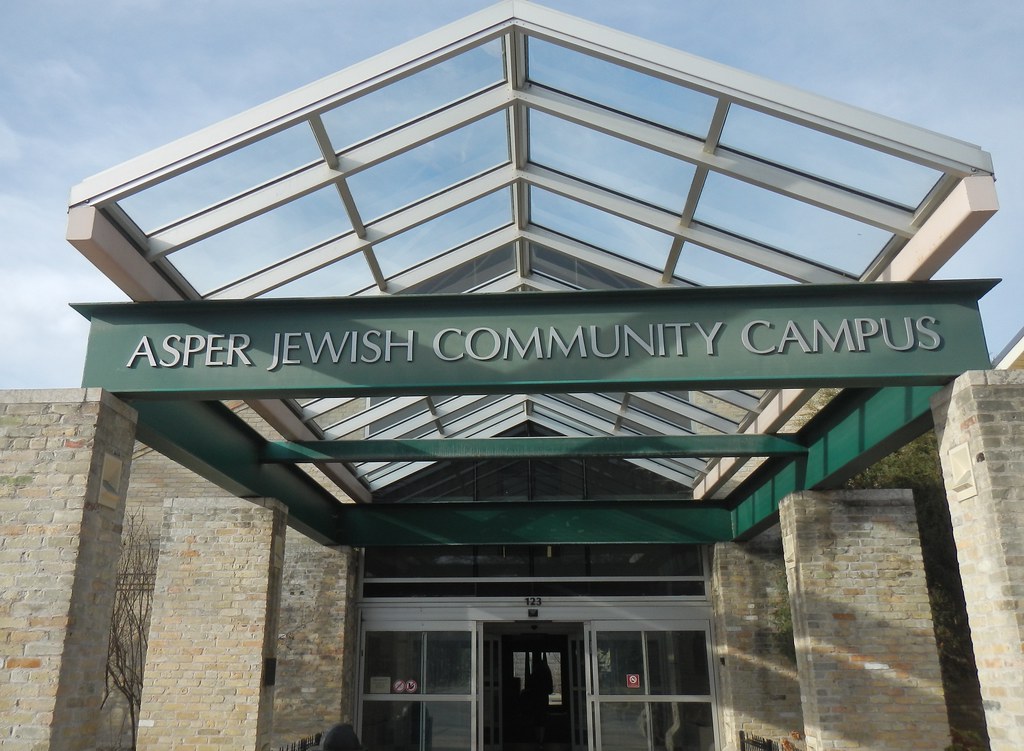Starting April 1, all visitors to the Asper Jewish Community Campus in Winnipeg will need to show government-issued identification to enter the facility.
The new digital scanning system, called Patronscan, “will enable us to digitally scan and store government identification for visitors without access cards or fobs, facilitating a faster and more seamless entry process,” said Jewish Federation of Winnipeg CEO Jeff Lieberman.
The system is the same being used at Manitoba Liquor Marts, where customers need to produce ID to be scanned to gain entry.
That system, introduced in 2020 as a way to curb theft, is something most people in the province are not familiar with, he said.
Although this is a time of heightened concern about antisemitism in Canada, Lieberman said there were no recent incidents or threats in Winnipeg that led to the new security measures.
“We have been talking about enhancing security for a long time,” he said, adding the heightened security “probably would have happened” even without the current war between Israel and Hamas in Gaza.
“The decision has been a long time in the making,” he said.
Belle Jarniewski, executive director of the Jewish Heritage Centre of Western Canada, which is also located on the campus, is happy to see the enhanced security measures.
“Unfortunately, there have been reports of threats against Jewish communities in Canada,” she said, noting there have been no specific threats against the Jewish community in Winnipeg. “It has led to a need for security at Jewish institutions.”
Through her work with the International Holocaust Remembrance Alliance, Jarniewski has visited Jewish organizations in Europe which have a heightened concern about threats and attacks. “Their level of security is very high,” she said.
Until recently, that kind of security was not needed here. “But today it is,” she said, adding the new measures will make people who work at or visit the campus “feel more comfortable.”
Jarniewski herself has received email threats. The threats are “really ugly stuff,” she said, saying things like ‘you’re not safe,’ and ‘we’re coming to exterminate you.’
Threats like that make her “far more aware of my surroundings,” she said, “something I never had to do in the past.”
For that reason, the new security measures at the Campus “sadly make sense,” she said.
The scanned identifications will automatically be verified against an internal database of barred individuals, “helping us maintain a safe and secure environment for everyone at the campus,” Lieberman said, adding there are about half a dozen such people on that list.
Accepted forms of identification include a driver’s licence, Manitoba Identification Card, certificate of Indian Status, Manitoba Métis Federation citizenship card, Canadian Armed Forces identification card or a passport.
Visitor identifications will be securely stored in a remote data center in Edmonton for 21 days, Lieberman said, noting the centre “respects the importance of privacy” of visitors.
Patronscan “employs robust security measures to ensure the confidentiality and integrity of the stored information,” he said, noting the current practice at the campus finds visitors just signing in when they come to the facility.
In addition to the Federation and Heritage Centre, other organizations that call the Asper Community Campus home are Gray Academy (a K-12 Jewish day school), the Rady Jewish Community Centre with its gym and aquatic centre, Jewish Child and Family Services, the Winnipeg Jewish Theatre and the Jewish Foundation of Manitoba. As many as a thousand people per day visit the campus daily.
